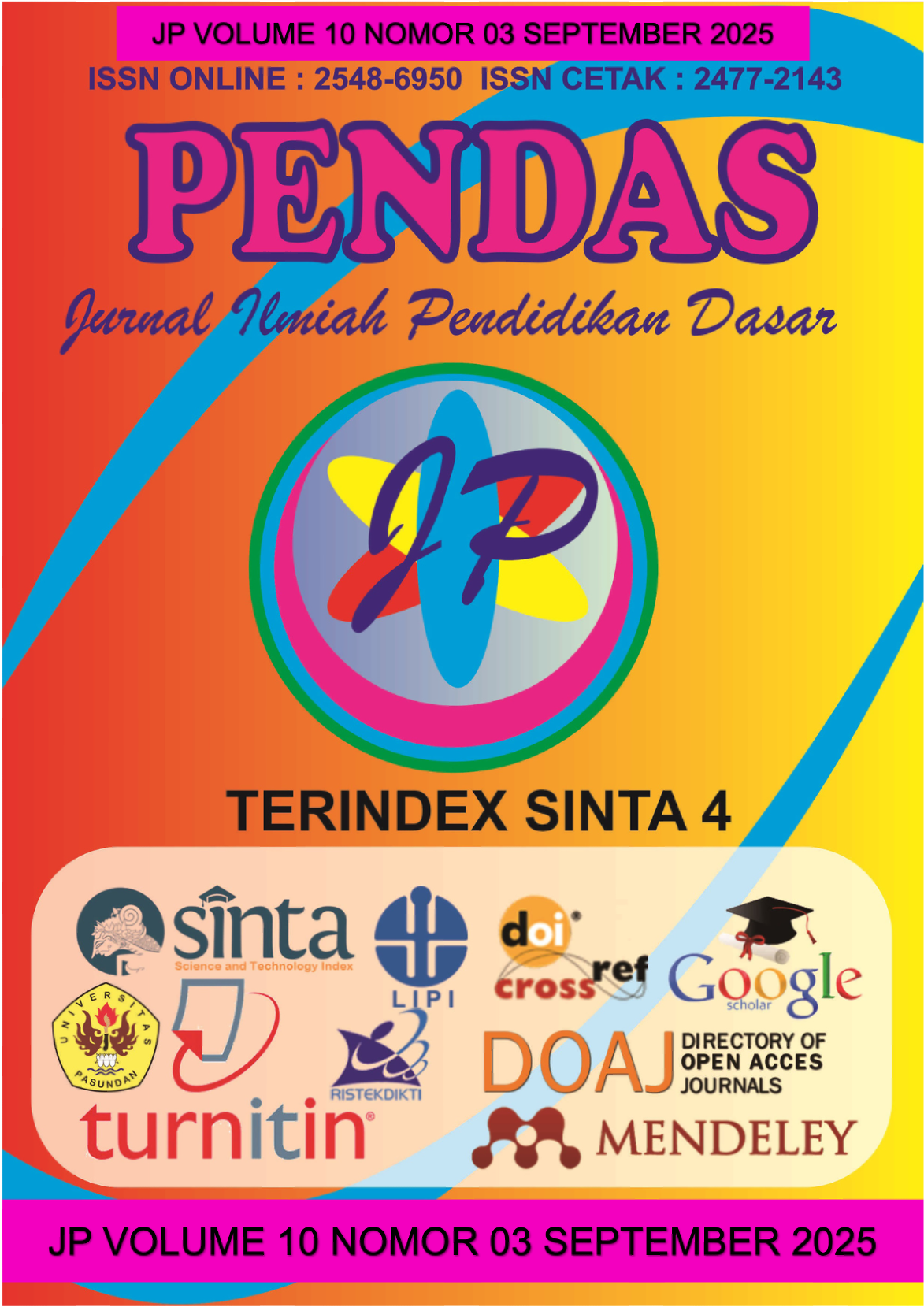IMPLEMENTASI PENDIDIKAN EMANSIPATORIS UNTUK MENINGKATKAN KEMANDIRIAN BELAJAR SISWA DI PKBM BINA BANGSA DALAM MENJAWAB TANTANGAN MASA DEPAN PENDIDIKAN
DOI:
https://doi.org/10.23969/jp.v10i03.30338Keywords:
emancipatory education, learning independence, PKBM, nonformal education, lifelong learning;Abstract
This study aims to describe the implementation of emancipatory education to improve students’ learning independence at PKBM Bina Bangsa and its relevance in addressing the challenges of future education. Using a qualitative case study approach, the research was conducted at PKBM Bina Bangsa, Purwakarta, involving students, tutors, and administrators as participants. Data were collected through in-depth interviews, participatory observation, and document analysis, and then analyzed descriptively using the interactive model of Miles and Huberman. The findings show that emancipatory education was implemented through flexible curriculum planning, participatory organization, dialogical and reflective teaching methods, and feedback-based evaluation. This approach successfully empowered students to become more independent in managing their learning, more confident, and more critical in addressing problems. Despite limitations in facilities and tutor competencies, emancipatory education at PKBM Bina Bangsa has created an inclusive and transformative learning ecosystem that aligns with the national education policy of lifelong learning and 21st-century skills. Therefore, emancipatory education can be an effective strategy to improve the quality of nonformal education in Indonesia.
Keywords: emancipatory education, learning independence, PKBM, nonformal education, lifelong learning;
Downloads
References
Brookfield, S. D. (2005). The Power of Critical Theory: Liberating Adult Learning and Teaching. San Francisco: Jossey-Bass.
Darmaningtyas. (2019). Pendidikan di Indonesia: Dari Krisis Menuju Transformasi. Yogyakarta: INSIST Press.
Freire, P. (2011). Pendidikan Kaum Tertindas (Terj. Utomo Dananjaya). Yogyakarta: Pustaka Pelajar.
Garrison, D. R. (1997). Self-directed learning: Toward a comprehensive model. Adult Education Quarterly, 48(1), 18–33. https://doi.org/10.1177/074171369704800104
Guba, E. G., & Lincoln, Y. S. (1985). Naturalistic Inquiry. Beverly Hills: Sage.
Herati. (2021). Implementasi model pembelajaran self-directed learning dalam melatih kemandirian belajar peserta didik di PKBM. Bandung: Universitas Pendidikan Indonesia.
Kemendikbud. (2016). Peraturan Menteri Pendidikan dan Kebudayaan Republik Indonesia Nomor 4 Tahun 2016 tentang Pedoman Umum Pendirian Satuan Pendidikan Nonformal. Jakarta: Kemendikbud.
Kemendikbudristek. (2022). Laporan Pendidikan Abad 21. Jakarta: Badan Standar, Kurikulum, dan Asesmen Pendidikan.
Khairunnisa, & Kessi. (2020). Efektivitas model pembelajaran homeschooling dalam mengembangkan kemandirian belajar anak pada PKBM Al Jauhar. Obor Penmas, 2(1), 25–34.
Miles, M. B., Huberman, A. M., & Saldaña, J. (2014). Qualitative Data Analysis: A Methods Sourcebook (3rd ed.). Thousand Oaks: Sage.
Nurul, & Damayanti. (2018). Efektivitas strategi pembelajaran individual melalui online dan kemandirian belajar peserta didik. Bandung: Universitas Pendidikan Indonesia.
Susanti. (2020). Tantangan implementasi pendidikan emansipatoris di lembaga nonformal. Jurnal Pendidikan Masyarakat, 8(2), 45–58.
Tilaar, H. A. R. (2009). Pengembangan Sumber Daya Manusia dalam Era Globalisasi. Jakarta: Rineka Cipta.
Yin, R. K. (2018). Case Study Research and Applications: Design and Methods (6th ed.). Los Angeles: Sage.
Downloads
Published
Issue
Section
License
Copyright (c) 2025 Pendas : Jurnal Ilmiah Pendidikan Dasar

This work is licensed under a Creative Commons Attribution 4.0 International License.














































